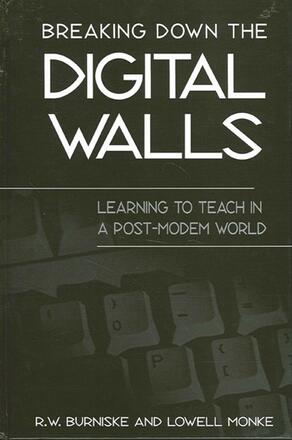
Breaking Down the Digital Walls
Learning to Teach in a Post-Modem World
Alternative formats available from:
Description
An exploration of the benefits and problems of using the Internet in education.
R. W. Burniske is an Assistant Professor in the College of Education at the University of Hawaii. Lowell Monke is Assistant Professor of Education at Wittenberg University.
Reviews
"Burniske and Monke guide us through ways of turning electronic communication into personal, communal, and critical human communication. The book is invaluable for educators who want to use technology in the service of equity and the intelligent analysis of issues of social justice. " — Herbert Kohl, author of The Discipline of Hope: Learning from a Lifetime of Teaching and 36 Children
"Breaking Down the Digital Walls is an unusual book describing how in different parts of the world two thoughtful, computer-using teachers created Internet collaborative projects for high school students in various countries. They ask hard questions of one another and technology. Their clear, personal, insightful writing underscores the slowly emerging truth that using computers in schools is far more about learning than technology.
"Filled with practical insights and much wisdom, these authentic voices from the classroom should give pause to both promoters and skeptics in using computers as tools for learning. " — Larry Cuban, Stanford University
"There are many 'how to do it' books, written by enthusiastic but generally intellectually shallow minds. There are also the 'technology is dreadful, it's the end of civilization. ..ah, if only we could go back to quills and parchment' type books, written by scholars who have had scant engagement with technology in teaching. This book avoids these two ends of the spectrum. Thus, it is potentially a major contribution to discourse about technology in education. " — W. Patrick Dickson, Michigan State University
"At heart, they are real teachers and have much to teach us all. This is a most welcome addition to the contemporary literature about computers and schooling. It should help to raise our thinking and talk to a new level of sophistication and high mindedness as we try to link the best educational aims of the past to the present and future of the electronic revolution. " — from the Foreword by Jonas F. Soltis, Columbia University